All Stories
-
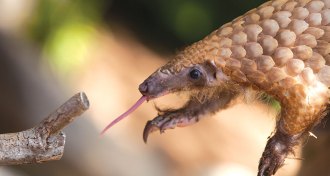 Animals
Animals‘Poached’ offers a deep, disturbing look into the illegal wildlife trade
In ‘Poached,’ a journalist reports from the front lines of the illegal wildlife trade and shows how conservationists are fighting back.
-
 Climate
ClimateHere’s how climate change is fueling Hurricane Florence
Scientists take a stab at predicting climate change’s influence on Hurricane Florence.
-
 Earth
EarthA new map reveals the causes of forest loss worldwide
A new study shows where global forest loss is due to permanent deforestation versus short-term shifts in land use.
-
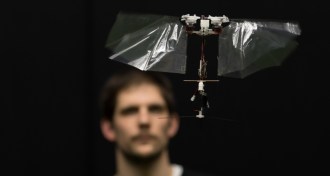 Tech
TechThis flying robot could reveal secrets of the aerial world of insects
A new winged robot with the exceptional agility of a fruit fly could lend insight into animal flight.
-
 Neuroscience
NeuroscienceBrain features may reveal if placebo pills could treat chronic pain
Researchers narrow in on how to identify people who find placebos effective for treating persistent pain.
-
 Earth
EarthSea level rise doesn’t necessarily spell doom for coastal wetlands
Wetlands can survive and even thrive despite rising sea levels — if humans give them room to grow.
-
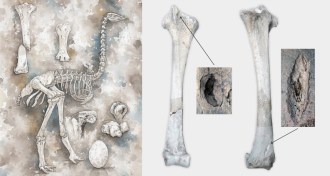 Anthropology
AnthropologyButchered bird bones put humans in Madagascar 10,500 years ago
Humans reached the island near Africa 6,000 years earlier than thought, raising questions about how its megafauna went extinct.
By Bruce Bower -
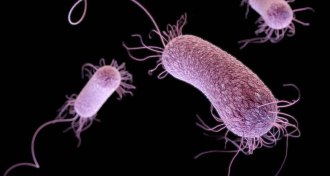 Chemistry
ChemistryA new antibiotic uses sneaky tactics to kill drug-resistant superbugs
Scientists have developed a molecule that kills off bacteria that are resistant to existing antibiotics.
-
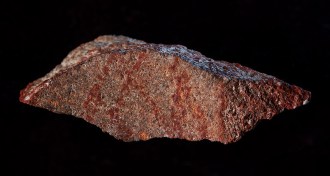 Archaeology
ArchaeologyThis South African cave stone may bear the world’s oldest drawing
The Stone Age line design could have held special meaning for its makers, a new study finds.
By Bruce Bower -
 Materials Science
Materials ScienceHere’s how graphene could make future electronics superfast
Graphene-based electronics that operate at terahertz frequencies would be much speedier successors to today’s silicon-based devices.
-
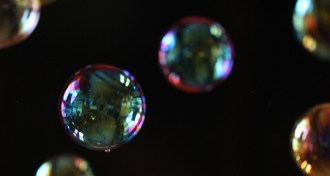 Physics
PhysicsSound waves can make bubbles in levitated drops of liquid
A new technique reveals how to make bubbles from droplets suspended in the air.
-
 Health & Medicine
Health & MedicineMarijuana use among pregnant women is rising, and so are concerns
Pediatricians are urging caution as data show more pregnant women are using marijuana. More research is urgently needed on the drug’s effects during pregnancy.